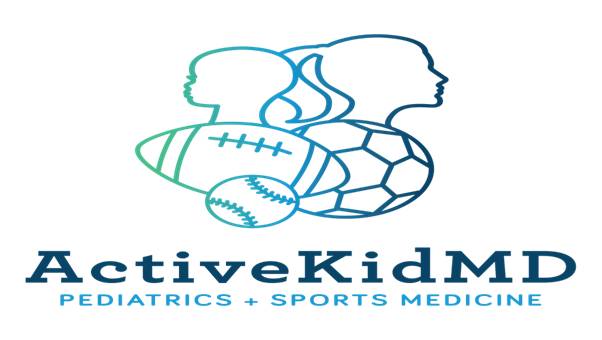General Diet Recommendations
Total calories- difficult to estimate, may range from 2000-4000 calories per day. Do not restrict calories (unless directed by a physician) and do not skip meals.
- CARBOHYDRATES: Short and long acting sugars including fruits, pastas, breads, cereals, certain athletic bars
- FATS: Good sources- animal, vegetable, fish or plant based unsaturated fats
- PROTEINS: Athletic teens need 1.2-1.5 grams of protein per kilogram of weight.
- Protein supplements generally not recommended because the usual American diet supplies generous protein.
- Most expensive protein supplement ends up wasted in the urine.
- Good food sources of protein include: meat, fish, soy, peanut butter, eggs, dairy products, and beans
Standard recommendations from most sports medicine authorities recommend majority of calories come from Carbohydrates.
Iron
Essential for optimal exercise performance and cognitive (thinking) function.
US Recommended daily allowance: 15 mg/day
Good sources: lean red meat (three times a week), dark chicken, fish, beans, eggs, iron-fortified cereals, and green vegetables.
Vitamin C can enhance iron absorption (drink orange juice with the above foods), also cooking in a cast iron skillet.
Tea, coffee, fats, and soft drinks decrease iron absorption.
Low iron stores can reduce athletic performance but do get a full evaluation from a qualified sports medicine specialist before taking iron supplements.
Calcium and Vitamin D
Boys and pre-adolescent girls need 1000 mg of calcium/day (four dairy servings).
Adolescent girls need 1500 mg of calcium/day (six dairy servings).
Each cup of milk, carton of yogurt, and chunk of cheese counts as a serving.
Calcium+appropriate physical activity= maximal bone mass
Vitamin-D fortified milk is more crucial than other dairy products.
All children need at least 400 International Units of Vitamin D every day, while many athletes may need even more for optimal health and performance.
Athletes who do not get regular sun exposure (10-15 minutes/day for 3-4 days/week), have darker skin tone, or who do not get adequate intake of Vitamin D food/drinks might be at higher risk for Vitamin D insufficiency.
Fluids
Probably the safest and most important nutritional supplement.
Good science shows dehydration causing a 1 pound weight loss may reduce athletic performance.
Pre-hydrate before activity and have regular access to fluids during practice and games.
Fluids with sugar and salt more helpful if activity is over one hour in duration.
Post-event meals
Pre-event and post-event weights can help determine fluid needs.
Drink 16 ounces for every pound lost after activity.
Immediately after activity, eating 1 gram of carbohydrate for every 1 pound of body weight can help replenish lost energy sources.
Getting 30 grams of protein can assist in recovery (good food sources include chocolate milk, peanut butter, Greek yogurt)
Chocolate milk is a great recommendation for post-workout recovery drink with a good carbohydrate to protein ratio that also provides fluids, Vitamin D, and a good tasting, low-cost, easy to find option.
Supplements (steroids, creatine, andro, glutamine )
Do they work?
Yes, some of them have been shown to improve exercise performance.
Do they have side effects?
In the case of andro and steroids, yes, there are well-known serious side effects.
In the case of creatine, we dont have enough long-term data to say for certain.
What little short-term data we have has been collected in adults, and may not apply to growing children.
Many cases of supplements having additional substances not listed on the label, some of which are either banned or potentially harmful.
Thus, the safest route is to avoid supplements. Save your money and safeguard your health.
Are teenage girls at particular risk for nutritional issues?
In female athletes, insufficient caloric intake can contribute to the Female Athlete Triad which consists of disordered eating, reduced bone density, and irregular or absent menstrual periods.
While any female athlete could be at risk, those athletes who participate in sports that value a lean physique are at higher risk.
Excessive exercise demands coupled with insufficient caloric intake can lead to irregular or absent menstrual periods.
Estrogen, a hormone necessary for building bone density, is released during normal menstrual cycles.
No menstrual period means no estrogen release, leading to a reduction in bone density that makes the athlete more prone to stress fractures.
Confronting an athlete about these issues is quite difficult; however, there are some suspicious signs:
- Missing one or more meals a day, or avoiding whole classes of foods
- Excessive weight loss or distorted body image (athlete is too fat)
- Once periods have begun, more than three months between menstrual periods, or less than six menstrual periods in one year
- Absence of first menstrual period by age 15
- History of more than one stress fracture
To prevent these issues, make certain female athletes consume sufficient calories (often 2000-3000 cal/day), calcium (1000-1500 mg/day) and iron (15 mg/day).
In addition, excessive pressure from coaches, parents, or other athletes regarding body shape or image can lead to disordered eating patterns.
Lack of iron is very common in young women, especially in endurance sports.
Appropriate evaluation by a sports medicine specialist can help uncover iron deficiency and prevent associate fatigue, poor performance, and reduce academic achievement.
